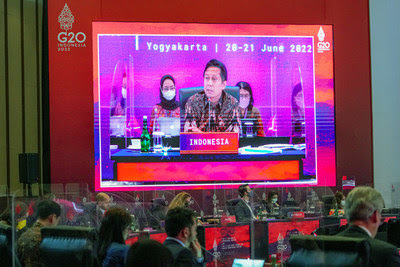The thirty-second meeting of the Emergency Committee under the International Health Regulations (2005) (IHR) on the international spread of poliovirus was convened by the WHO Director-General on 15 June 2022 with committee members and advisers attending via video conference, supported by the WHO Secretariat. The Emergency Committee reviewed the data on wild poliovirus (WPV1) and circulating vaccine derived polioviruses (cVDPV) in the context of global eradication of WPV and cessation of outbreaks of cVDPV2 by end of 2023. Technical updates were received about the situation in the following countries and territories: Afghanistan, Democratic Republic of the Congo, Israel, Malawi, the occupied Palestinian territory and Pakistan, and written updates were provided by Eritrea and Yemen.
Wild poliovirus
The committee was very concerned that a second WPV1 had been detected in south-eastern Africa, in Mozambique, close to the border with Malawi where the first case was detected. Furthermore, genetic sequencing analysis of the two wild polioviruses indicates a single importation event from Pakistan / Afghanistan into southeastern Africa; the importation event is estimated to have occurred between July 2019 (date of the common node between Pakistan viruses and Malawi/Mozambique viruses) and December 2020 (date of the common node between Malawi and Mozambique viruses). COVID19-related severe movement restrictions implemented in March 2020 in Pakistan and Afghanistan means it is less likely exportation could have occurred between March and December 2020. The Malawi and Mozambique viruses independently evolved for about 0.9 and 1.2 years respectively until first detected and are both considered orphan viruses, and the absence of detection of circulating WPV1 viruses in Malawi and Mozambique between 2019 and 2021 suggests surveillance gaps in southeastern Africa. The original WPV1 cluster in south Asia has not been detected there since December 2020.
The committee noted that the certification of polio eradication African Region was not affected by the outbreak, as it is due to importation rather then endemic transmission. The committee also noted the importance of cross border activities in the outbreak response.
A multi-country response to the WPV1 outbreak is continuing, with four immunization rounds being conducted in Malawi, Mozambique, Tanzania, Zambia; Zimbabwe will join the response for rounds 3 and 4. Additionally, retrospective case searching, surveillance strengthening and improving essential immunization are all ongoing. The committee noted that while administrative coverage was high, problems with population data made these coverage estimates unreliable. Monitoring coverage by Lot Quality Assurance Sampling (LQAS) showed far lower coverage, and the committee noted that countries that have long been polio free needed assistance from GPEI partners in the implementation of supplementary immunization activities (SIAs).
The committee was concerned about the recent outbreak of WPV1 in the North Waziristan district of southern Khyber Pakhtunkhwa (KP) province in Pakistan. Since the last Emergency Committee (EC) meeting in February 2022, Pakistan has reported ten WPV1 cases from North Waziristan and two WPV1 positive environmental samples from the neighboring district of Bannu. With the ongoing WPV1 circulation in South KP, the risks to the rest of Pakistan has escalated.
The key challenges which hampered progress in southern KP include the complex security situation, specifically in North and South Waziristan, which resulted in inadequate access, missed children and reduced quality of SIAs. Community resistance with refusals to vaccination (including vaccination boycotts and fake finger-marking without vaccination), lack of female frontline workers and high turnover of frontline workers, and weak health infrastructure and service delivery all pose challenges. The ten WPV1 cases reported in 2022 are zero dose for routine immunization, zero dose or under-immunized in SIAs, and are from refusal families.
Another challenge in South KP is the sub-optimal Routine Immunization (RI) and progress on strengthening RI in South KP is slow.
The committee commended the dedication of frontline health workers who continue to seek every child who needed vaccination and extended its sympathy to the families of the 17 health workers who were killed in February 2022 in Takhar and Kunduz in Afghanistan. It is encouraging that 2.6 million previously unreached children have been vaccinated, and the number of children not yet accessed by immunization teams was down to an estimated 700,000. Data provided to the committee clearly showed that where house to house polio campaigns are possible the vaccine coverage is far higher.
There has been continuous / steady progress in the rest of Pakistan with no WPV1 detection in last 11 months. Last WPV1 case and positive environmental sample outside of South KP were detected in January 2021 and July 2021 respectively.
Source: World Health Organization



